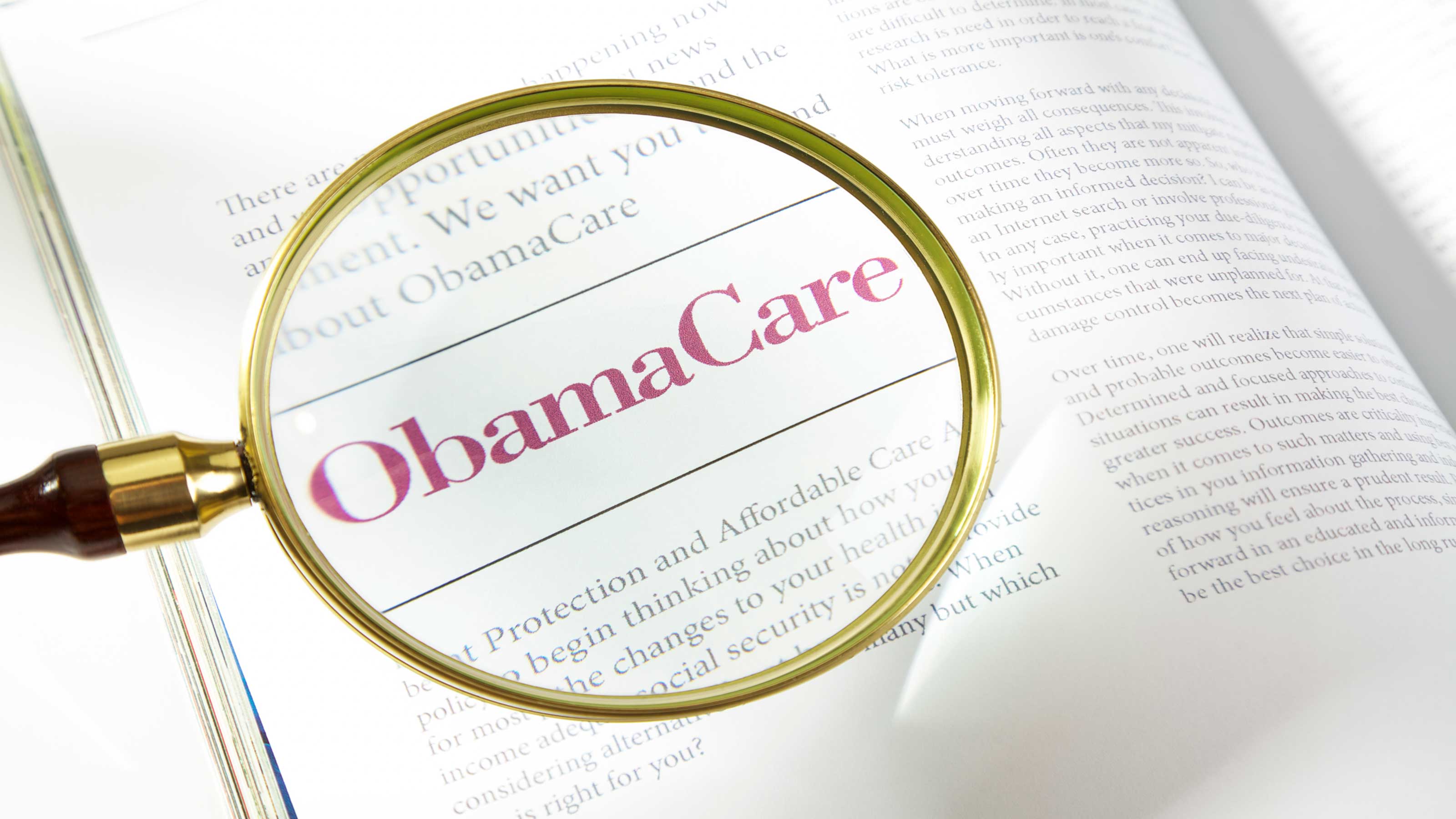Surprise Medical Bills Are Coming to an End
With the No Surprises Act taking effect in 2022, patients will no longer live in fear of receiving an unexpected and exorbitant medical bill for emergency care and other ancillary services.

Profit and prosper with the best of Kiplinger's advice on investing, taxes, retirement, personal finance and much more. Delivered daily. Enter your email in the box and click Sign Me Up.
You are now subscribed
Your newsletter sign-up was successful
Want to add more newsletters?

Delivered daily
Kiplinger Today
Profit and prosper with the best of Kiplinger's advice on investing, taxes, retirement, personal finance and much more delivered daily. Smart money moves start here.

Sent five days a week
Kiplinger A Step Ahead
Get practical help to make better financial decisions in your everyday life, from spending to savings on top deals.

Delivered daily
Kiplinger Closing Bell
Get today's biggest financial and investing headlines delivered to your inbox every day the U.S. stock market is open.

Sent twice a week
Kiplinger Adviser Intel
Financial pros across the country share best practices and fresh tactics to preserve and grow your wealth.

Delivered weekly
Kiplinger Tax Tips
Trim your federal and state tax bills with practical tax-planning and tax-cutting strategies.

Sent twice a week
Kiplinger Retirement Tips
Your twice-a-week guide to planning and enjoying a financially secure and richly rewarding retirement

Sent bimonthly.
Kiplinger Adviser Angle
Insights for advisers, wealth managers and other financial professionals.

Sent twice a week
Kiplinger Investing Weekly
Your twice-a-week roundup of promising stocks, funds, companies and industries you should consider, ones you should avoid, and why.

Sent weekly for six weeks
Kiplinger Invest for Retirement
Your step-by-step six-part series on how to invest for retirement, from devising a successful strategy to exactly which investments to choose.
Starting next year, out-of-network health care providers can no longer ambush patients with an unexpected, exorbitant bill. Instead, doctors will need a patient’s consent first to charge an out-of-network rate. “People generally thought surprise medical bills were unfair. There is an element of being blindsided,” says Daniel Klein, president and CEO of the advocacy group Patient Access Network Foundation. The reform could lower health insurance premiums, too.
The No Surprises Act, which Congress passed late last year, prohibits providers from charging patients out-of-network rates for emergency care and ancillary services, such as anesthesiology, delivered during scheduled procedures at in-network facilities.
Specialties, such as anesthesiology, where hospital patients get little say in who treats them, have long been a sore point. “You don’t even know the name of your doctor until the bill comes,” says Karen Pollitz, senior fellow at the Kaiser Family Foundation, a nonprofit that studies health policy. As of 2022, insurers must treat these out-of-network services as if they were in-network on a patient’s bill. Providers and facilities can be fined up to $10,000 per violation.
From just $107.88 $24.99 for Kiplinger Personal Finance
Become a smarter, better informed investor. Subscribe from just $107.88 $24.99, plus get up to 4 Special Issues

Sign up for Kiplinger’s Free Newsletters
Profit and prosper with the best of expert advice on investing, taxes, retirement, personal finance and more - straight to your e-mail.
Profit and prosper with the best of expert advice - straight to your e-mail.
For scheduled procedures, some out-of-network providers at in-network facilities can charge the higher rates if they give the patient an estimated bill at least 72 hours in advance and the patient consents. For procedures scheduled within that 72-hour window, the patient must be notified about the higher cost the day the appointment is made. The law also applies to air ambulances but not ground ambulances, which are more complicated to regulate, Pollitz says. The legislation won’t affect Medicare or Medicaid, as these programs already ban “balance billing,” which is when a patient is charged the difference between the doctor’s bill and what insurance will pay.
“This law should take away some of patients’ anxiety,” says Erin Duffy, a fellow at the Schaeffer Center for Health Policy and Economics at the University of Southern California and an adjunct policy researcher at Rand Corp., a think tank. “You could be a patient who planned a procedure, and you did your research to select an in-network surgeon and in-network hospital. But there was still a high risk that someone involved could be out of network and you could get a balance bill. Now that fear should be addressed.”
About 42% of inpatient admissions had at least one claim submitted by an out-of-network doctor in 2016, up from 26% in 2010, according to a study published in the medical journal JAMA Internal Medicine. Out-of-network costs also rose over that period, from an average of $804 to $2,040.
Although more than two dozen states have passed laws to regulate surprise medical billing, they exclude self-funded insurance plans favored by large employers. Those plans, which are regulated by federal law, cover more than 60% of people with private insurance.
When the new law takes effect, disputes over these bills will be settled between the insurer and medical provider, and if both parties can’t agree, the case will go to arbitration. How arbitrators rule will likely affect health insurance premiums. The Congressional Budget Office predicts that the law could reduce premiums up to 1% as some providers are paid less.
But arbitrators can also side with doctors. “If the provider continues to win out, they will continue to go in with the higher amount,” says J.D. Piro, national practice leader of U.S. health solutions for Aon, which provides retirement and health products to employers. If that happens a lot, Piro says, premiums will rise.
Advocates will need to educate patients about the new law, says Christopher Garmon, an assistant professor of health administration at the University of Missouri-Kansas City. “That is one problem that you could have—providers send out bills and consumers don’t know they are protected,” he says. “They may pay it without knowing they don’t have to.”
Profit and prosper with the best of Kiplinger's advice on investing, taxes, retirement, personal finance and much more. Delivered daily. Enter your email in the box and click Sign Me Up.
Jackie Stewart is the senior retirement editor for Kiplinger.com and the senior editor for Kiplinger's Retirement Report.
-
 Dow Adds 1,206 Points to Top 50,000: Stock Market Today
Dow Adds 1,206 Points to Top 50,000: Stock Market TodayThe S&P 500 and Nasdaq also had strong finishes to a volatile week, with beaten-down tech stocks outperforming.
-
 Ask the Tax Editor: Federal Income Tax Deductions
Ask the Tax Editor: Federal Income Tax DeductionsAsk the Editor In this week's Ask the Editor Q&A, Joy Taylor answers questions on federal income tax deductions
-
 States With No-Fault Car Insurance Laws (and How No-Fault Car Insurance Works)
States With No-Fault Car Insurance Laws (and How No-Fault Car Insurance Works)A breakdown of the confusing rules around no-fault car insurance in every state where it exists.
-
 9 Types of Insurance You Probably Don't Need
9 Types of Insurance You Probably Don't NeedFinancial Planning If you're paying for these types of insurance, you may be wasting your money. Here's what you need to know.
-
 Banks Are Sounding the Alarm About Stablecoins
Banks Are Sounding the Alarm About StablecoinsThe Kiplinger Letter The banking industry says stablecoins could have a negative impact on lending.
-
 New Bill Would End Taxes on Social Security Benefits in 2026: What Retirees Should Know
New Bill Would End Taxes on Social Security Benefits in 2026: What Retirees Should KnowTax Law Congress could look to high earners to help offset lost revenue and possibly shore up the Social Security program.
-
 What to Know About New Medicaid Cuts: Is Your Local Hospital Closing Soon?
What to Know About New Medicaid Cuts: Is Your Local Hospital Closing Soon?Tax Policy Trump’s ‘One Big Beautiful Bill’ is now law, and rural hospitals across the U.S. are on the chopping block.
-
 Mom Needs a Nursing Home. Should I Spend Down Her Assets So She Qualifies for Medicaid?
Mom Needs a Nursing Home. Should I Spend Down Her Assets So She Qualifies for Medicaid?We asked expert financial advisers for their advice.
-
 Amazon Resale: Where Amazon Prime Returns Become Your Online Bargains
Amazon Resale: Where Amazon Prime Returns Become Your Online BargainsFeature Amazon Resale products may have some imperfections, but that often leads to wildly discounted prices.
-
 Tax Rule Change Could See Millions Lose Health Insurance
Tax Rule Change Could See Millions Lose Health InsuranceThe Kiplinger Tax Letter If current rules for the health premium tax credit (PTC), a popular Obamacare subsidy, aren't extended, 3.7 million people could lose their health insurance.
-
 Trump’s Tax Cut Risks Your SNAP, Medicaid Benefits
Trump’s Tax Cut Risks Your SNAP, Medicaid BenefitsTax Cuts The GOP budget blueprint could slash lifesaving programs for millions of U.S. households.